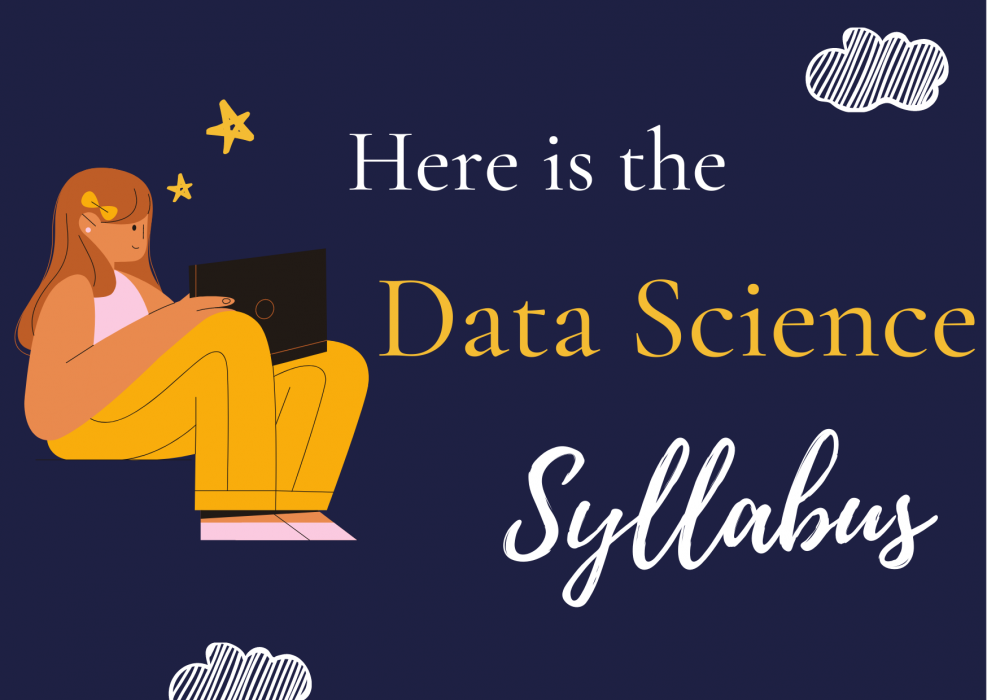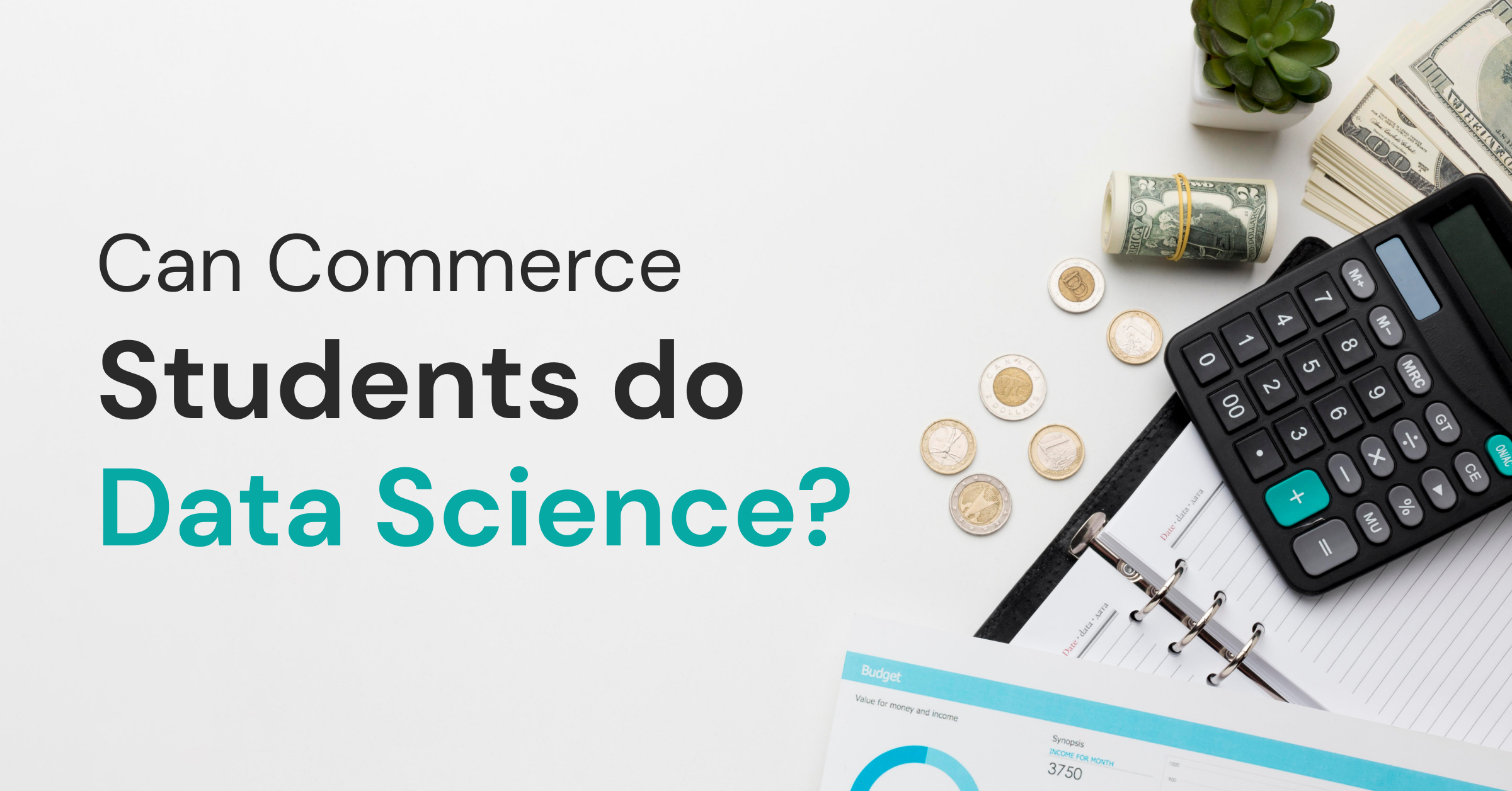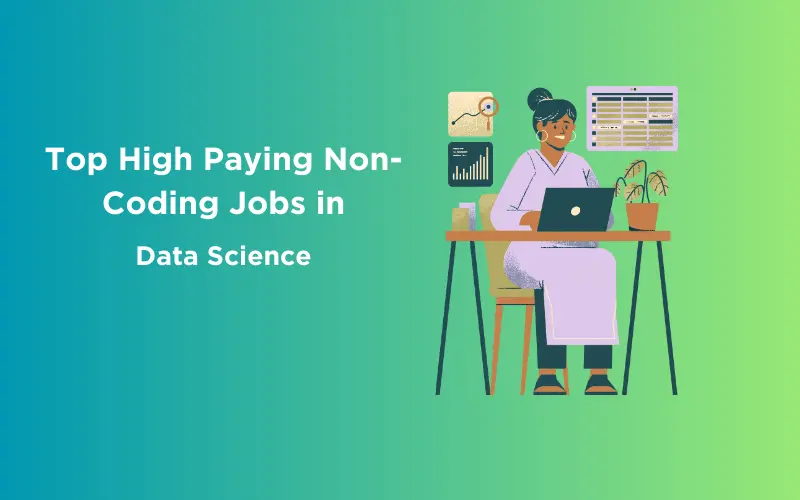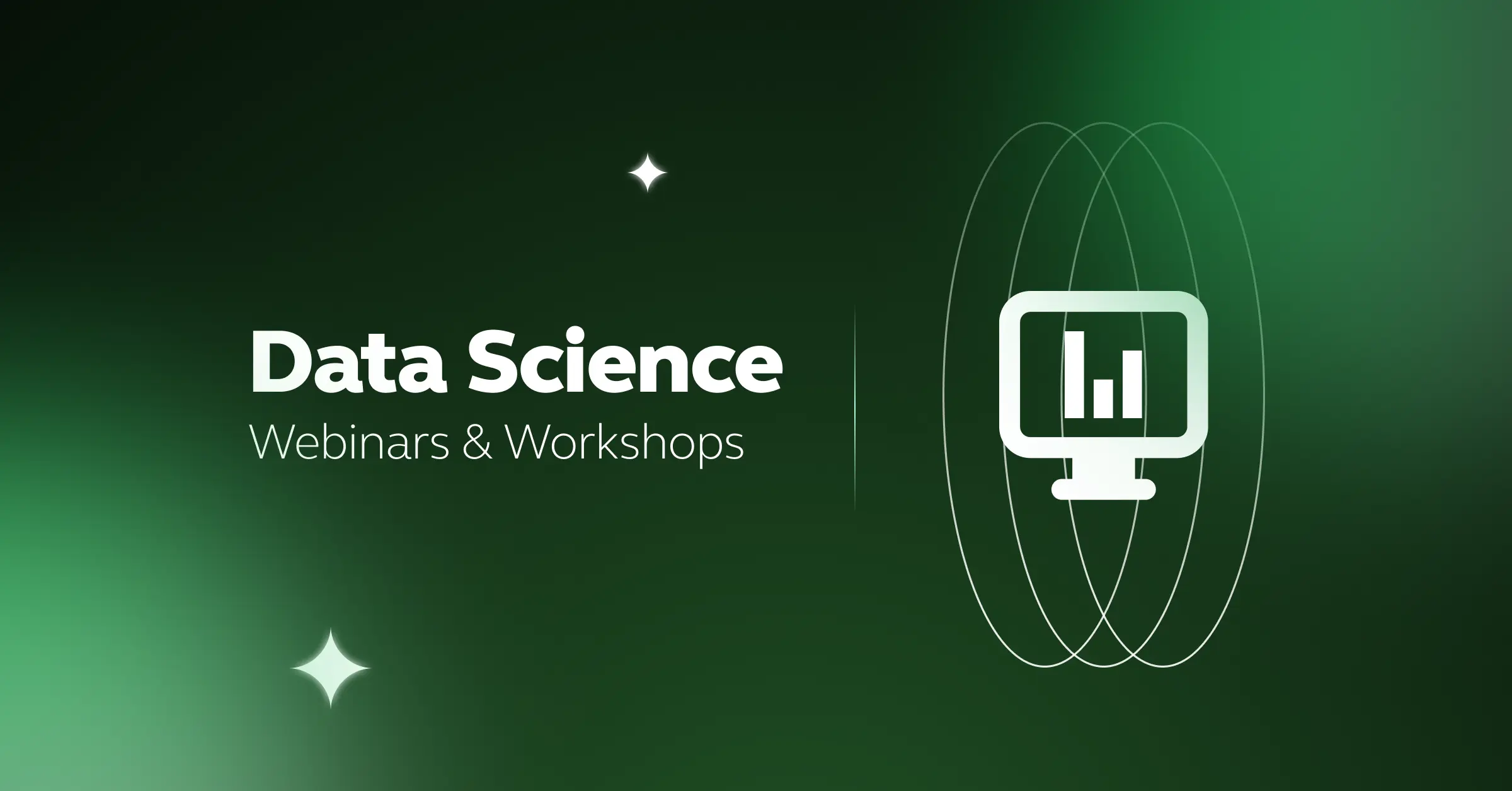
A Complete Guide on Data Science Syllabus | 2024
Apr 03, 2024 6 Min Read 1219 Views
(Last Updated)
Are you one of those aspiring Data Scientists who want to be a PRO in Data Science? However owing to the wide bandwidth of DATA around Data Science, it’s overwhelming to get started at it! It’s ironically true! Today, Data Science syllabus and courses have seen millions of versions in themselves. So much so that, what to take up tops the current Google Search trends.
You may find multiple websites and blogs mentioning the reports,
“Data analyst” searches are up by 154% since 2016. Interest in this data science role displays hockey stick growth. Demand for data analysts has shot through the roof over the last 5 years, etc.
Taken from: here
That is when our Experts found it crucial to bring up a course syllabus that suits the current trends and at the same time is simplified to the finest details to make it easily grasped by students. Improvising and reworking multiple times on our Data Science course syllabus, we have come up with this specially curated Data Science syllabus.
Table of contents
- What is Data Science? Why master it after all???
- Eligibility & Requisite Skills to be a Data Scientist
- Data Science Syllabus
- Python(Basics & Advanced)
- Algorithmic Thinking with Python
- Data Handling in Python(Pandas & MongoDB)
- MongoDB
- Probability & Statistics with NumPy
- Data Visualization in Python
- Data Engineering with Python
- Data Analysis on Image & Text Data
- Machine Learning with Sklearn
- Natural Language Processing
- Solving DS problems
- FAQ
What is Data Science? Why master it after all???
“Data is the new science. Big Data holds the answers.”
By Pat Gelsinger, Chief Executive Officer at VMware
Yes! That’s where we stand today. Data Science is at the core of everything that’s happening around us. From Banking, education, finance, and health to the most vogue platforms of movies, and entertainment, data is what makes it all happen. And that is the reason why Data Science is now recommended to be instilled from a very young age.
It seems that data is the new KING! And why not? Without data processing, businesses tend to lose their market and become much weaker. Be it any cutting-edge technology, you can count on Data Scientists to improve its efficacy.
It’s highly impossible to overestimate the importance of data in modern economies.
Consider any well-known and adopted technologies like Cloud Computing, Mobile Development, Artificial Intelligence, IoT, Automation, etc. you will be able to identify a major role of Data.
So, mastering Data Science will not only help you attain a great career profile but also add value to your social and professional presence.
Before we move into the next section, ensure you have a good grip on data science essentials like Python, MongoDB, Pandas, NumPy, Tableau & PowerBI Data Methods. If you are looking for a detailed course on Data Science, you can join GUVI’s Data Science Career Program with Placement Assistance. You’ll also learn about the trending tools and technologies and work on some real-time projects.
Additionally, if you want to explore a programming language such as Python through a self-paced course, try GUVI’s Python self-paced course.
Eligibility & Requisite Skills to be a Data Scientist
While the field of data science remains a strong ground of opportunities equally for experienced professionals as well as beginners, it demands a great deal of hands-on experience with the right tools & technologies. Any interested person with any educational background and an analytical frame of mind can take up the Data Science course.
IT professionals,
Analysts & Business Managers,
Beginners, or
Research Graduates
All with no age bar, are welcome to willingly pursue the course and get trained as Data Scientists.
Ranked as one of the top career options by Glassdoor, LinkedIn, etc., a Data Scientist is responsible for collecting, analyzing, and interpreting huge amounts of data that constitute both structured and unstructured data. Creating useful business solutions and valuable insights are the main objectives that Data Scientists work towards.
That said, must-have skills that a Data Scientist should possess in some or the other way, are the below mentioned
- Maths & Statistics
- Analytics & Modeling
- Great Programming
- Data Visualization
- Excellent Communication
- Intellectual Curiosity &
- Machine Learning Know-how
Above all, a keen interest in learning is the main key to getting started.
Now that you know you are eligible for the course, and more or less imbibe all the skills that a Data Scientist needs, let’s get started and dig deeper into the Data Science Syllabus.

Data Science Syllabus
Our program’s curriculum is comprehensively designed to help learners acquire data science competencies while working with hands-on projects using prominent technologies like Python, MongoDB, and Deep Learning methods. The most efficient Data Science curriculum is here for you.
Python(Basics & Advanced)
As per the Developer Survey 2020 report by Stack Overflow, Python ranks as the third most loved programming language. The same reports also add that the number of developers still in the learning phase and wishing to master Python seems to be rising high.
Multiple question-and-answer websites for professional and enthusiast programmers like Stackoverflow and Github also state Python to be one of the most preferred programming languages.
That is to say, there is a huge demand for Python in the industry both from the developer and the employer standpoint. So, mastering Python is quite beneficial for every developer.
Bidding the same thought in mind, students can go through the basics of Python. Here all essential beginner-friendly concepts of Python programming like data types, loops, data structures, and functions, etc., would be covered. That will be followed by assessments and assignments.
After acquiring the essential basics of Python it is recommended to move on to other advanced concepts like Comprehension, File handling, Regular Expressions, Object-oriented Programming, Pickling, and many more essential concepts.
Algorithmic Thinking with Python
Once you frame a solid foundation with Python language, you can then explore the need for Algorithmic Thinking and the necessity of efficient coding. Dive deeper through Data Structures and Algorithms along with Memory Management Techniques. These topics will help you master analytical thinking in the long run.
Data Handling in Python(Pandas & MongoDB)
After brushing your brains with algorithmic thinking, you may move on to handling huge amounts of data. Master data handling techniques with Pandas library. This step-by-step learning will ease your learning curve.
Thereafter, you can explore the different miscellaneous functions of the Pandas library in detail.
MongoDB
You may then jump on to the popular NoSQL databases like MongoDB and their importance as well as their key components. Try to perform several operations like CRUD operations etc.
Continue with MongoDB beyond basics like embedding documents, dealing with types of data, schema types, and Data relationships in MongoDB, etc.
Probability & Statistics with NumPy
Once you acquire the basics of MongoDB, then you can go through Probability and Statistics.
Probability and statistics are vital to understand, process, and interpret the vast amount of data. Deal with the basics of probability and statistics like Probability theory, Bayes theorem, distributions, etc., and their importance. Besides that, make sure to do hands-on with Numpy on those concepts.
Later, continue with statistics and probability and practice with descriptive and inferential statistics along with Hypothesis testing. Ensure to explore a lot of other relevant statistical methods for deeper understanding.
Data Visualization in Python
Then comes the Data Visualization part. Data Visualization is used to understand data in a visual context so that the patterns, trends, and correlations in the data can be understood. Practice a lot of visualization with libraries like Seaborn, Matplotlib, etc., in turn, that leads to effective storytelling.
Plotly’s Dash is a famous open-source data visualization library that you can use to build custom data visualization projects. Plotly’s Dash allows better storytelling.
Data Engineering with Python
Data Engineering is always needed to analyze the data and preprocess it. Since real-world data is not always industry-ready, you need to deal with a lot of data cleaning and Exploratory Data Analysis techniques. Data Engineering is a very crucial stage for any data science project.
Data Analysis on Image & Text Data
After having a solid foundation in Data Engineering, proceed with Data Analysis. It is another vital step towards interesting Data Science projects. Since the real-world data is not always industry-read, you need to analyze the data and preprocess it. So, dealing with a lot of data cleaning and exploratory data analysis techniques is important.
Machine Learning with Sklearn
You can not skip Machine Learning, anyhow. Explore the need for machine learning and its types. Also, understand different Algorithms and when to use them. Then check how to use essential mathematical intuition along with Evaluation metrics. Also, learn details about regression algorithms.
In continuation to the ML algorithms, view in detail about different classification algorithms along with mathematical intuition and evaluation metrics.
Then you may proceed with classification algorithms. Explore classification algorithms like tree-based algorithms in detail like how to interpret trees, pruning, and ensemble methods like bragging and boosting, etc.
After dealing with a lot of Supervised Machine Learning Algorithms, move ahead and analyze when to use what. Besides that, you should understand the do’s and don’ts while training an ML model.
Thereafter, explore Unsupervised learning algorithms. Learn why unsupervised? And when to use them? Also, dive deep and grow your essential mathematical intuition.
Natural Language Processing
You might have surely heard about Natural Language Processing (NLP). Firstly, form a base with Syntactic analysis. Learn parsing to analyze text using basic grammar rules to identify sentence structure, how words are organized, and how words relate to each other.
To name a few: Tokenization, Part of Speech Tagging (PoS Tagging), Lemmatization and Stemming, Stop word removal, etc, are a few.
Later on, you can get a clear picture of Semantic Analysis. Semantic Analysis focuses on capturing the meaning of the text. First, it studies the meaning of each individual word (lexical semantics). Then, it looks at the combination of words and what they mean in context.
Some of the essential sub-tasks of semantic analysis are Word sense disambiguation, Relationship extraction, etc. Besides that, also explore Sentiment Analysis, Text extraction, etc.
Solving DS problems
Then comes the actual DS exercise. Take time and focus on industry projects that are currently in demand under the guidance of industry experts.
So folks, what do you say? Are you planning to take up this interesting syllabus? Then there are a few more details that you might wish to know.
Duration of Data Science Syllabus
If you are someone who is taking up the course on your own, then your duration of completion, depending upon your enthusiasm to learn and interest may vary somewhere between 3-5 months.
Typically, for any working professional or a student who takes up the course on weekends, the time taken to master all the above fundamentals of the Data Science syllabus, maybe anywhere around 5 months.
We recommend that you follow this Data Science syllabus and cover every topic with a detailed study of every concept. Practice and build unlimited knowledge by building intriguing projects.
Tools covered in Data Science syllabus
Some of the important tools covered in the Data Science Syllabus are as follows:
Roles and Responsibilities as a Data Science Professional
- Data Scientist,
- Big Data Engineer
- Data Architect,
- Database Manager,
- Data Engineer,
- Data Analyst,
- Business Analyst, Statistician,
- ETL,
- Machine Learning Engineer,
- Data Product Owner
This is where you will need established support. Best mentorship and great support are what GUVI offers to our students. Subject Matter Experts from IIT-M train the students with their expertise and render encouragement and motivation to the aspirants.
This comprehensive course on Data Science is unique in its processes. Following a structured curriculum, the program gives a step-by-step acquaintance of the concepts simplifying the learning process. A marathon of mock interviews and a portfolio of brilliant Data Science projects are added advantages to the students.
How does our Placement Assistance work?
- Enroll in our Data Science coursework
- Attend Weekend classes + Pursue self-paced learning
- Complete the projects assigned by Industry Experts
- Secure a Digital Portfolio in “Github”
- Attend Mock Interviews with our HR team & Technical Round with Industry Experts
- Receive Interview opportunities with Companies
- Attend & clear the Interview with splendid packages
Kickstart your Data Science journey by enrolling in GUVI’s Data Science Career Program where you will master technologies like MongoDB, Tableau, PowerBi, Pandas, etc., and build interesting real-life projects.
Alternatively, if you would like to explore Python through a Self-paced course, try GUVI’s Python Self-Paced certification course.
Some of the top companies across the globe that are excited to hire our budding Data Scientists are as follows
You will find a detailed list of companies and student testimonials, in addition to other details, on our website:
So, that was all on the Data Science Syllabus. Feel free to ping us for further details. Drop your comments and queries, if any, in the comment section below.
If you wish to take a detailed tour of our Advanced-Data Science Program, please fill in your details. Our experts will get back to you shortly.

FAQ
What is the best way to start learning data science?
The best way to start learning data science is by gaining a strong foundation in mathematics, programming, and statistics. Familiarize yourself with Python or R, and then explore libraries like NumPy, Pandas, and Scikit-learn for data manipulation and machine learning.
Do I need a background in computer science to learn data science?
While a background in computer science can be beneficial, it is not a strict requirement. Many successful data scientists come from diverse educational backgrounds, including mathematics, engineering, and social sciences.
What skills besides technical knowledge are essential for a data scientist?
Apart from technical skills, data scientists need strong problem-solving abilities, critical thinking, and effective communication. Domain knowledge and the ability to work in cross-functional teams are also valuable assets.
Can I learn data science without a formal degree in the field?
Yes, you can learn data science without a formal degree. There are plenty of self-paced online resources, boot camps, and courses that cater to individuals without a formal background in data science.
What are the career prospects for data science professionals?
Data science offers promising career prospects with high demand across various industries. Data scientists are sought after for their ability to derive valuable insights and aid in data-driven decision-making, making it a lucrative and fulfilling career path.























Did you enjoy this article?